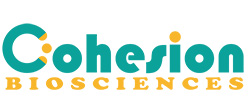Description: Rabbit polyclonal antibody to EPHB1/2 (Phospho-Y594/604) Immunogen: KLH-conjugated synthetic phosphopeptide corresponding to residues surrounding Y594/604 of human EPHB1/2 protein. The exact sequence is proprietary. Purification: The antibody was purified by immunogen affinity chromatography. Clonality: Polyclonal Form: Liquid in 0.42% Potassium phosphate, 0.87% Sodium chloride, pH 7.3, 30% glycerol, and 0.01% sodium azide. Dilution: WB (1/500 - 1/1000), IF/IC (1/100 - 1/500) Gene Symbol: EPHB1; EPHB2 Alternative Names: EPHB1; ELK; EPHT2; HEK6; NET; Ephrin type-B receptor 1; ELK; EPH tyrosine kinase 2; EPH-like kinase 6; EK6; hEK6; Neuronally-expressed EPH-related tyrosine kinase; NET; Tyrosine-protein kinase receptor EPH-2; EPHB2; DRT; EPHT3; EPTH3; ERK; HEK5; TYRO5; Ephrin type-B receptor 2; Developmentally-regulated Eph-related tyrosine kinase; ELK-related tyrosine kinase; EPH tyrosine kinase 3; EPH-like kinase 5; EK5; hEK5; Renal carcinoma antigen NY-REN-47; Tyrosine-protein kinase TYRO5; Tyrosine-protein kinase receptor EPH-3Entrez Gene (Human): 2047; 1969Entrez Gene (Mouse) : 270190Entrez Gene (Rat) : 24338SwissProt (Human): P54762; P29323SwissProt (Mouse) : Q8CBF3; P54763SwissProt (Rat) : P09759Storage/Stability : Shipped at 4°C. Upon delivery aliquot and store at -20°C for one year. Avoid freeze/thaw cycles.
-
 Western blot analysis of EPHB1/2 (Phospho-Y594/604) expression in A431 (A), HeLa (B), NIH3T3 (C) whole cell lysates.
Western blot analysis of EPHB1/2 (Phospho-Y594/604) expression in A431 (A), HeLa (B), NIH3T3 (C) whole cell lysates. -
 Immunofluorescent analysis of EPHB1/2 (Phospho-Y594/604) staining in A431 cells. Formalin-fixed cells were permeabilized with 0.1% Triton X-100 in TBS for 5-10 minutes and blocked with 3% BSA-PBS for 30 minutes at room temperature. Cells were probed with the primary antibody in 3% BSA-PBS and incubated overnight at 4 °C in a humidified chamber. Cells were washed with PBST and incubated with a DyLight 594-conjugated secondary antibody (red) in PBS at room temperature in the dark. DAPI was used to stain the cell nuclei (blue).
Immunofluorescent analysis of EPHB1/2 (Phospho-Y594/604) staining in A431 cells. Formalin-fixed cells were permeabilized with 0.1% Triton X-100 in TBS for 5-10 minutes and blocked with 3% BSA-PBS for 30 minutes at room temperature. Cells were probed with the primary antibody in 3% BSA-PBS and incubated overnight at 4 °C in a humidified chamber. Cells were washed with PBST and incubated with a DyLight 594-conjugated secondary antibody (red) in PBS at room temperature in the dark. DAPI was used to stain the cell nuclei (blue). -
 Direct ELISA antibody dose-response curve using Anti-EPHB1/2 (Phospho-Y594/604) Antibody. Antigen (Phosphopeptide and non-phosphopeptide) concentration is 5 ug/ml. Goat Anti-Rabbit IgG (H&L) - HRP was used as the secondary antibody, and signal was developed by TMB substrate.
Direct ELISA antibody dose-response curve using Anti-EPHB1/2 (Phospho-Y594/604) Antibody. Antigen (Phosphopeptide and non-phosphopeptide) concentration is 5 ug/ml. Goat Anti-Rabbit IgG (H&L) - HRP was used as the secondary antibody, and signal was developed by TMB substrate.

 Anti-EPHB1/2 (Phospho-Y594/604) Antibody
Anti-EPHB1/2 (Phospho-Y594/604) Antibody  Datasheet
Datasheet MSDS
MSDS